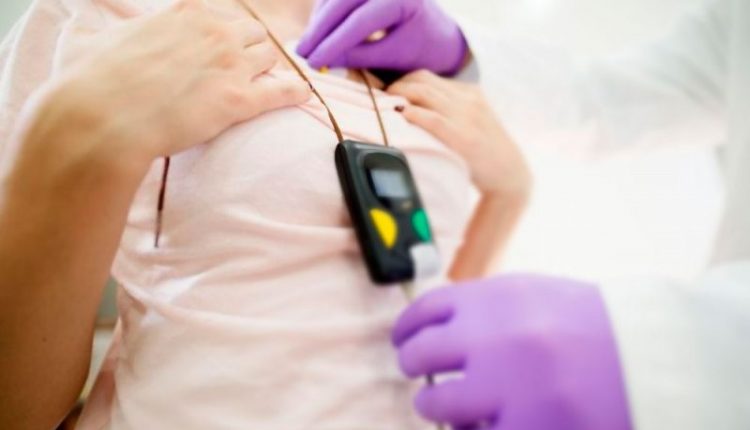
What is the Dynamic Electrocardiogram ECG according to Holter?
The Holter ECG is a non-invasive diagnostic test that involves recording the heart’s electrical activity by means of a small portable device (recorder) connected to the skin via some electrical wires and electrode pads (small platelets) placed on the chest
What is the dynamic Holter ECG used for?
Analysis of the 24-hour recorded trace can detect a rhythm disturbance (arrhythmia) or insufficient blood supply to the heart (ischaemia).
Any symptoms reported by the patient during the recording period can be correlated with changes in the ECG.
Are there any preparation rules?
There are no preparation rules.
In male patients, in order to improve the adhesion of platelets to the skin, it may be necessary to remove chest hair.
The possible discontinuation of a treatment/drug is only determined by the physician requesting the test.
How does the dynamic Holter ECG work?
The Holter ECG is a portable device attached to the skin via a few wires and electrode pads placed on the chest.
The electrodes pick up the electrical activity produced by the heart and transmit it to the device, which records it in its memory.
In this way, the system can store all heartbeats generally for a period of 24 hours.
During the test, the patient can carry out daily activities without restriction, taking care only that the electrodes do not come off the skin (perhaps through excessive sweating) and interrupt the recording.
Once the device is removed, the stored electrical signal is processed by an external device and evaluated by the specialist.
Read Also
Emergency Live Even More…Live: Download The New Free App Of Your Newspaper For IOS And Android
Twenty-Four-Hour Ambulatory Blood Pressure Monitoring: What Does It Consist Of?
Holter Blood Pressure: Everything You Need To Know About This Test
Cardiac Arrhythmias: Atrial Fibrillation
Full Dynamic Electrocardiogram According To Holter: What Is It?
Cardiac Rhythm Restoration Procedures: Electrical Cardioversion
Hypertension: Symptoms, Risk Factors And Prevention
Organ Complications Of Hypertension
How To Conduct Antihypertensive Treatment? An Overview Of Drugs
Blood Pressure: What It Is And How To Measure It
Aetiological Classification Of Hypertension
Classification Of Hypertension According To Organ Damage
Essential Hypertension: Pharmacological Associations In Antihypertensive Therapy
Treatment Of High Blood Pressure
Heart Failure: Causes, Symptoms And Treatment
The Thousand Faces Of Vascular Disease
Blood Pressure: When Is It High And When Is It Normal?
Metabolic Syndrome: Why Not To Underestimate It
Endocrine And Metabolic Emergencies In Emergency Medicine
Drug Therapy For The Treatment Of High Blood Pressure
Assess Your Risk Of Secondary Hypertension: What Conditions Or Diseases Cause High Blood Pressure?
Holter Monitor: How Does It Work And When Is It Needed?
What Is Patient Pressure Management? An Overview
Head Up Tilt Test, How The Test That Investigates The Causes Of Vagal Syncope Works
Cardiac Syncope: What It Is, How It Is Diagnosed And Who It Affects
Holter Blood Pressure: What Is The ABPM (Ambulatory Blood Pressure Monitoring) For?
Sinus Tachycardia: What It Is And How To Treat It
Emergency Room Access: Neurology Emergencies



